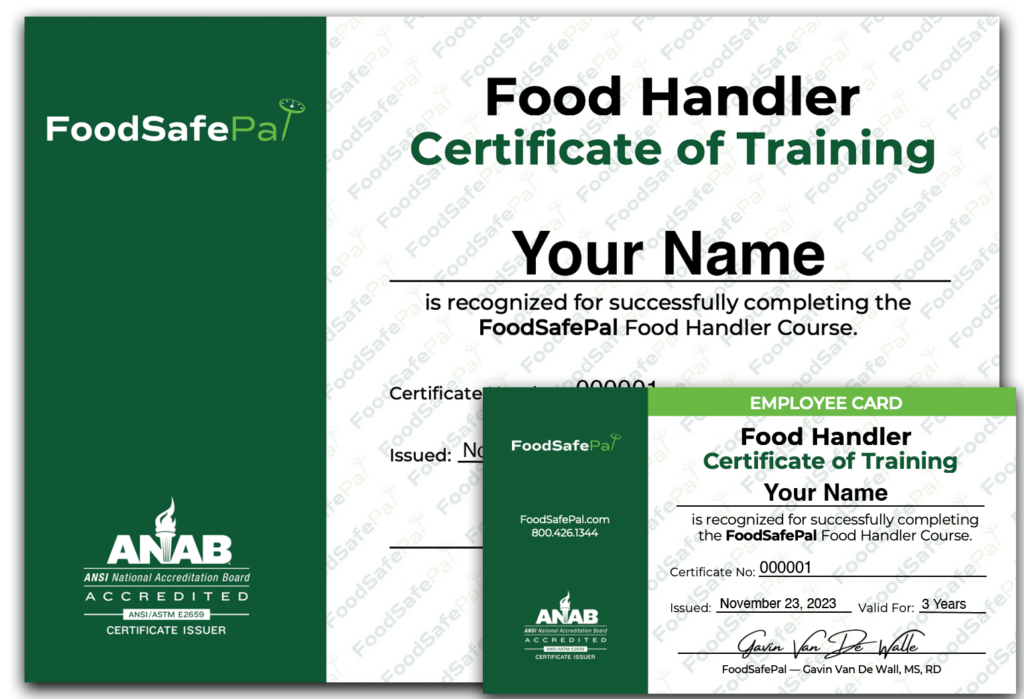Originally published on 15 October 2023 by Gavin Van De Walle
If you choose to undertake the FoodSafePal Texas food handler training, you can get a discount off the training fee by using the discount code “foodsafety1” during the registration process.
Texas cottage food production
Under the Texas cottage food law, you can operate a cottage food business and sell certain foods directly to consumers.
Allowed cottage foods include:
- baked goods without cream, custard, or meat fillings
- candy
- nuts and unroasted nut butters
- fruit butters, canned jam or jelly, and fruit pies
- dehydrated or frozen raw and uncut fruits and vegetables
- popcorn, cereal, and granola
- pickled fruits and vegetables
- plant-based acidified canned goods
- roasted coffee or dry tea
- fermented vegetable products
You can sell allowed foods directly to people in-person or online as long as the person to whom you’re selling is a Texas resident.
To sell these foods, they must be packaged and labeled with certain information, depending on the food.
Texas does not regulate cottage food businesses like they do foodservice establishments, so you don’t need a permit or license, and health departments don’t inspect your cottage food production operation.
Texas limits the amount of revenue you can earn from selling homemade foods to $50 000 USD annually.
Summary
Under the Texas cottage food law, you can sell foods that don’t require time-temperature controls for safety directly to consumers. Texas doesn’t regulate cottage food production operations like food establishments, so you don’t need a license or permit.
Do you need food safety training to sell homemade food in Texas?
Cottage food operations don’t have to comply with the Texas Food Establishment Rules, which require that all food workers earn a food handler card.
However, like other states, Texas still requires that you complete an accredited basic food safety education or training program for food handlers.
While Texas prohibits you from selling foods that require time and temperature controls and that are more prone to bacterial contamination like animal products and cut fruits and vegetables, it’s still important that you know how to prepare and handle approved cottage foods safely (1).
Texas recognizes ANSI-National Accreditation Board (ANAB)-accredited food handler training — such as FoodSafePal’s — to meet this food safety training requirement.

Earn Your Food Handlers Card + Certificate to Sell Cottage Foods
Accredited & Meets Texas’ Cottage Food Law
ENROLL NOW – use coupon code foodsafety1 for your discount
You can complete FoodSafePal’s online food handler training program in under two hours.
The course covers essential food safety topics, including food hazards, good personal hygiene, handwashing, and cleaning and sanitizing procedures.
To demonstrate your knowledge on these topics, you must pass a test to earn your food handler certificate and card.
The test consists of 40 multiple-choice questions, and you need to answer at least 28 (70%) to pass. You get a second try if you don’t pass the first time.
After you earn your certificate, you can print or save it as a PDF for your records as proof of the training.
Summary
Texas requires that you successfully complete an accredited basic food safety education or training program for food handlers to operate a cottage food business.
Label requirements
Texas’ cottage food law requires that each food you sell be properly packaged and labeled.
The food must be packaged in a way that prevents contamination from hazards that can make people sick. The exception is foods that are too large and bulky for conventional packaging.
The label must provide the following information:
- name and address of your cottage food production operation
- the common or usual name of the product
- the presence of any of the 9 major food allergens
- the statement: “This food is made in a home kitchen and is not inspected by the Department of State Health Services or a local health department.”
- a unique number for each batch of pickled fruit or vegetables, fermented vegetables, or plant-based acidified canned goods

If you sell frozen or raw and uncut fruits and vegetables, you must label or list on the invoice in at least 12-point font the following: “SAFE HANDLING INSTRUCTIONS: To prevent illness from bacteria, keep this food frozen until preparing for consumption.”
While you need to list the presence of allergens, you don’t need to list all ingredients, though it’s best practice when possible.
Summary
Texas’ cottage law requires that each food you sell be properly packaged and labeled. You must include certain information on the label, such as your business name and address and disclose the presence of allergens, among other things.
The bottom line
Cottage food businesses are becoming increasingly popular in Texas.
While the state doesn’t regulate cottage food businesses in the same way they regulate food establishments, you still must successfully complete a basic food safety education or ANAB-accredited food handler training program.

Earn Your Food Handlers Card + Certificate to Sell Cottage Foods
Accredited & Meets Texas’s Cottage Food Law
ENROLL NOW – use coupon code foodsafety1 for your discount
Texas recognizes FoodSafePal’s ANAB-accredited food handler training as meeting this requirement.
Make sure that each food you sell is properly packaged labeled with the required information.

